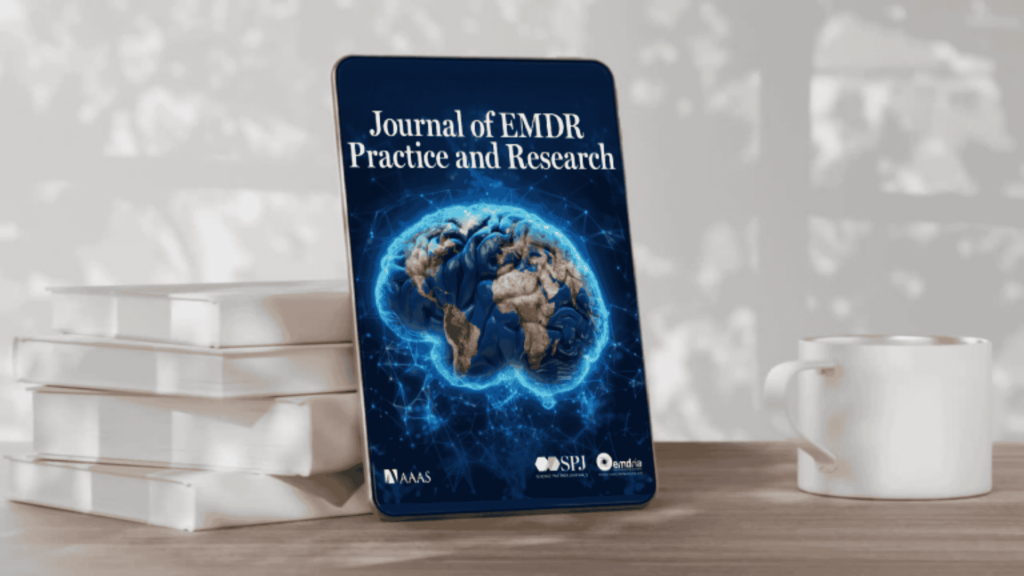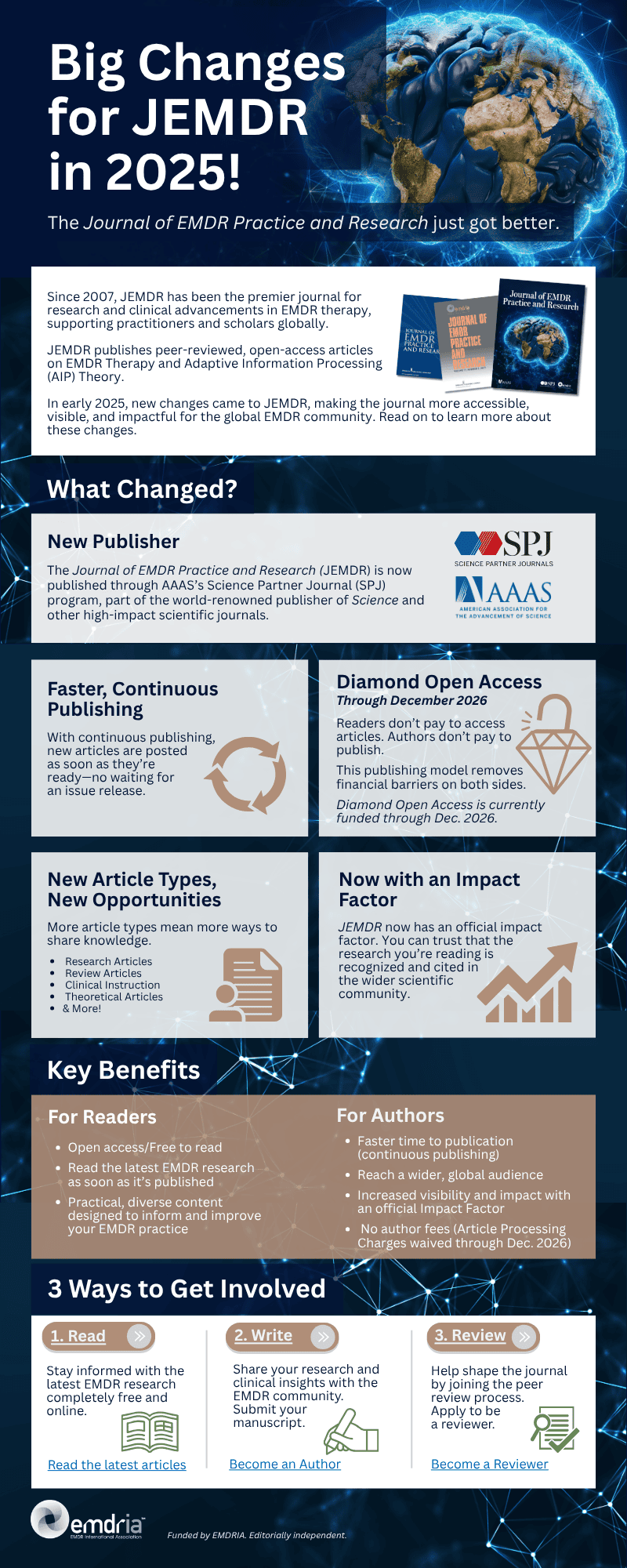About JEMDR®
The Journal of EMDR Practice and Research® (JEMDR) is a peer-reviewed publication devoted to integrative, state-of-the-art papers about EMDR therapy. It is a broadly conceived interdisciplinary journal that stimulates and communicates research and theory about EMDR therapy and its application to clinical practice. The journal publishes experimental studies; theoretical, review, and methodological articles; case studies; brief reports; and book reviews.
Established in July 2007 by EMDRIA™, the journal is published by The American Association for the Advancement of Science (AAAS). Beginning January 1, 2025, JEMDR® will be published by the Science Partner Journals (SPJ) program of AAAS, the world’s oldest and largest general science organization, serving 10 million people around the globe. AAAS publishes the renowned journal Science, among others.
- ISSN (print): 1933-3196
- ISSN (online): 1933-320X
JEMDR® is co-edited by Jenny Rydberg, a former special editor with JEMDR®, book editor, and associate editor of the European Journal of Trauma and Dissociation, and Derek Farrell, Ph.D., MBE, a principal lecturer in psychology at the University of Worcester, UK, where he directs a master’s program in EMDR therapy.
Read the Latest Articles
Stay informed with the latest research completely free and online.
Become an Author
Share your research and clinical insights with the EMDR community.
Become a Reviewer
Help shape the journal by joining the peer review process.
Recent Articles
The EMDR Protocol for Recent Critical Incidents: Application in a Disaster Mental Health Continuum of Care Context (Journal of EMDR Practice and Research)
RCT group field study after a 7.2 earthquake in Mexico. Individuals were provided EMDR Protocol for Recent Critical Incidents (EMDR-PRECI).
A Comparison of Visual Versus Auditory Concurrent Tasks on Reducing the Distress and Vividness of Aversive Autobiographical Memories (Journal of EMDR Practice and Research)
Study on benefits of eye movement similar to that used in EMDR on reducing the vividness & emotionality of negative autobiographical memories.
Pretreatment, Intratreatment, and Posttreatment EEG Imaging of EMDR: Methodology and Preliminary Results From a Single Case (Journal of EMDR Practice and Research)
Electroencephalography (EEG) was used to monitor neuronal activation during the whole EMDR session, including the autobiographical script.
See other resource types in the EMDRIA™ Library.



